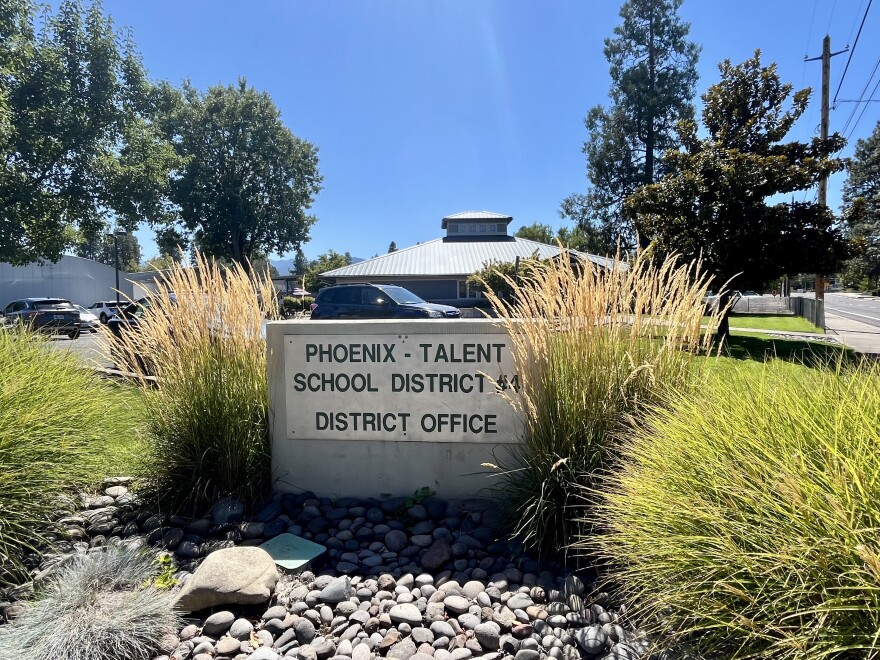The order prohibits students from using phones during the entire school day, what’s known as "bell-to-bell." Districts must adopt this policy by the end of October and begin enforcement by Jan. 1.
For many districts, the biggest change will come at high schools, where students will no longer be allowed to use their phones between classes or during meals.
The Phoenix-Talent School District offers no cost breakfast and lunch to all students. Superintendent Brent Barry is concerned that high school students may leave campus during lunch to use their phones instead of eating.
"What worries us a little bit is: Will kids go off campus now to use technology and not be eating and taking advantage of nutritional services?"
Brookings-Harbor Superintendent Helena Chirinian agrees.
"Unfortunately, I think they'll pick the cellphone over the food," she said.
In response, Brookings-Harbor High School is reinstating a policy allowing students to leave campus for lunch, to avoid what Chirinian calls "power struggles." The school will also offer to-go boxes, so teens can still receive free lunches if they leave campus to use their phones.

All district officials emphasized that their focus will be on personal responsibility rather than punishment.
Enforcement of the cellphone ban could involve taking a phone away for a class period or a full school day, needing a parent to pick up the phone or meeting with parents.
Policy exceptions will be made for students with medical needs or those with disabilities who have an individualized education plan.
Many districts are launching the policy at the start of the school year to avoid switching midyear. Phoenix-Talent is the only district JPR interviewed that is not starting the school year with the new policy in place.
For many districts, the order won't require major changes. Some districts already had similar rules.
But in the Klamath County School District, cellphone policy was previously left to individual schools and teachers.
"I think they're pretty happy to have that decision-making off their laps and have everybody following the same rules," Klamath County Superintendent Glen Szymoniak said.
The four superintendents interviewed report they've seen little pushback on the new policy. Some parents expressed concern about needing to reach their child during an emergency, but they have been reassured that kids can still have phones nearby in their backpacks or lockers — as long as they’re turned off.
Three Rivers Superintendent Dave Valenzuela hopes this change will improve students’ relationships.
"I noticed that there is a disengagement in terms of social interactions," he said. "I think there's less of a positive culture in our schools when cellphones are a priority over personal relationships."
In a news release, the governor’s office said the policy is meant to help students stay focused in class and support their mental health. Officials said educators across Oregon report that phones disrupt learning and interfere with teaching.
“Research shows cellphones undermine students’ ability to focus—even when the phone is just on the desk, not being used,” the release said.



